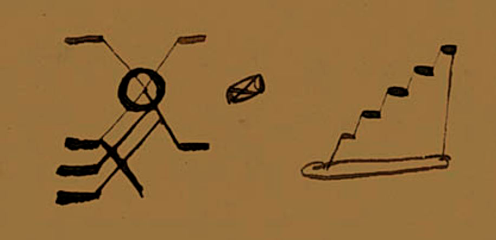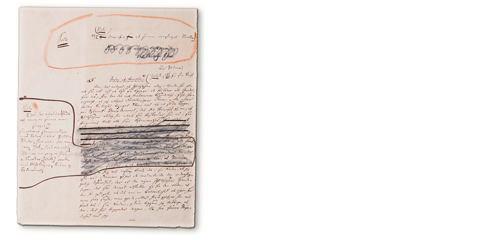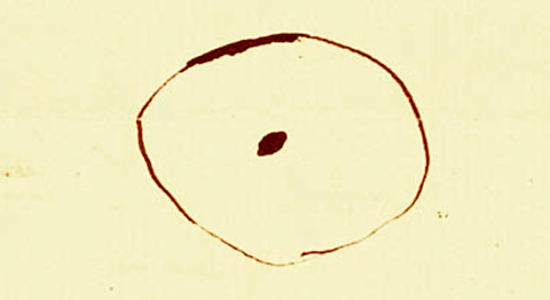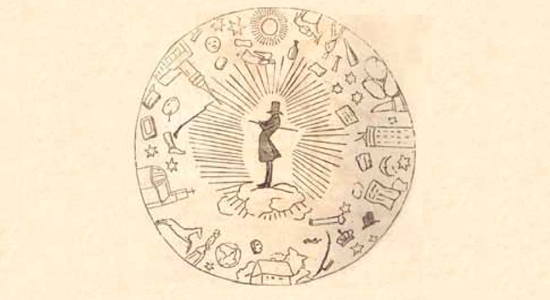Demands, Reconciliation, and Offense
THE PROPHET OF MODERNITY

In the midst of journal entries about speculative metaphysics, Kierkegaard made these sketches, which are reminiscent of the drawings of an engineer
The Press and Natural Science
In light of his experiences with The Corsair, Kierkegaard developed a general distaste for journalists. He was especially repelled by their lack of scruples and responsibility.
"God in Heaven knows that blood-thirst is foreign to my soul (…) and yet I would, in the name of God, take responsibility for giving the order to fire if I, first of all, with the precaution of a most anxious conscience, had convinced myself that there was not one single other man facing the rifles―yes, not one single living creature other than―journalists." (Journalen NB10. Source: SKS.dk)
With great foresight he understood that the press lives by creating and sustaining its own stories, which are only considered good because they are, in reality, evil. As a new source of power, the modern media reshapes the population into the passive “public,” which loves triviality and idolizes banality. The result is:
"narrow-mindedness, fear of one’s peers, embarrassment, gossip, backbiting, lack of an openheartedness to admit to having conviction (...). Spies watching family life, pot-watchers in the household. In short, anything that pleases the highly esteemed public. "
In mass culture, the voice of the individual disappears into the chatter of the times. It’s impossible to speak or remain silent. Something intermediate arises:
"With this kind of chatter, all distinctions between the private and the public are erased and become a private-public chattiness, which corresponds loosely to what the public is. The public is a public audience interested in what is most private. " (En literair Anmeldelse. Source: SKS.dk)

Along with his attack on the press, Kierkegaard formulated a critique of the natural sciences. In his journals we find the following shot aimed at natural science:
"What excitement was aroused by the use of the stethoscope! Soon it will come to the point where every barber does it, so that after he’s shaved you he’ll ask, “Perhaps you would also like to be stethoscoped?” Then someone else will invent an instrument for listening to the beating of the brain. It will arouse enormous excitement until, in 50 years’ time, every barber can do it. Then, at the barbershop, after you’ve had a haircut and a shave and have been stethoscoped (because by then this will be quite ordinary), the barber will ask, Perhaps you would also like me to listen to your brain beating?" (Journalen NB. Source: SKS.dk)
Kierkegaard’s entries on natural science are like microscopes pointing in all different directions, illustrating his hectic distractedness that characterizes the modern researcher:
"Absolutely no benefit can be derived from involving oneself with the natural sciences. One stands there defenseless, with no control over anything. The researcher immediately begins to distract one with his details: First off to Australia; then to the moon; then into an underground cave; then, by Satan, up the ass—to look for an intestinal worm; first the telescope must be used, then the microscope: Who the Devil can endure it!" (Journalen NB. Source: SKS.dk)


